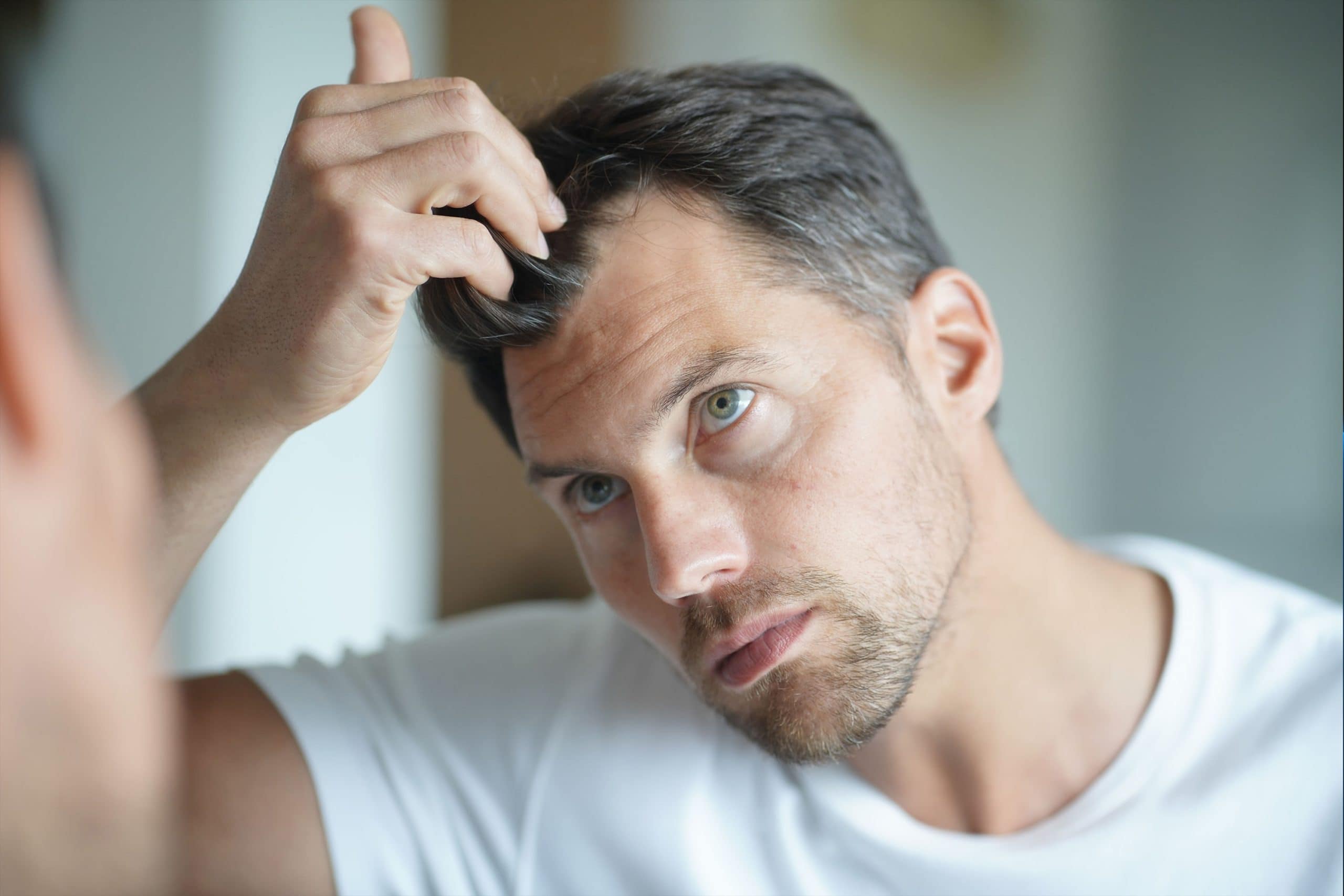Hair loss is a natural process that affects every person. If a few tens of hairs fall out every day, this is normal and should not be a cause for concern. However, excessive hair loss can indicate the development of alopecia (hair loss). This problem is particularly familiar to men. There are many myths about hair loss, so it is worth understanding what is true and what is not, and when to seek help from a specialist.
10 main myths about hair loss
- hair loss due to daily washing: Performing hygiene procedures has no effect on hair loss. In some cases, such as with oily hair, it is even necessary to wash your head every day.
- hair loss due to frequent coloring: Oxidants do indeed negatively affect hair structure, which can lead to hair damage and breakage, but this is not directly related to hair loss.
- Hair loss only in men due to heredity: Although this problem is more common in men, women can also suffer from hereditary alopecia. Androgenic alopecia is the result of testosterone deficiency, which changes during andropause in men and menopause in women. It is during this period that excessive hair loss often occurs.
- Frequent combing causes hair loss: This is not true. Using high-quality combs even improves microcirculation of the blood, which promotes better nourishment of the hair follicles and their strengthening.
- Frequent trimming prevents hair loss and makes hair thicker: Hair loss is not related to hair length. The number of hair follicles is predetermined and does not change depending on the frequency of haircuts. Regular trimming helps get rid of split ends, making hair look more attractive.
- Hair loss by wearing a hat: Hair loss may be more pronounced in the winter, but this is more often related to a deficiency of vitamins and minerals needed for proper hair growth, rather than wearing a hat.
- Hair loss through root damage: Even with damaged roots, hair can still grow, so this statement is not always true.
- All men lose hair as they age: While this is common, not all men suffer from androgenic alopecia. Over time, hair can get thinner, making it not look as thick and full.
- external factors do not affect hair loss: This is another false statement. Hair loss can even be caused by frequently wearing your hair in a tight bun.
hair loss cannot be stopped: This is partially true, but often hair loss is a symptom of certain medical conditions. If you quickly diagnose the cause of the problem and start treatment, hair loss can be stopped.
Factors that can cause hair loss
Having dispelled the basic myths, it is worth finding out what factors can lead to hair loss. Most commonly, the problem is caused by the following conditions:
- hormonal disorders: Deficiency of certain hormones, such as testosterone, can lead to hair loss.
- Unbalanced diet: If the body does not get enough vitamins, minerals and other nutrients, hair can start to fall out.
- Severe stress: Constant tension and stress have a negative effect on the condition of hair and can lead to hair loss.
- Strong exposure to chemicals or radiation: Hair loss can occur as a result of chemotherapy or radiation therapy used to treat cancer.
To reduce the risk of hair loss, it is a good idea not only to take proper care, but also to monitor your overall health and eat a balanced diet.
If you notice that your hair is falling out intensely or outbreaks of baldness appear on your head, do not waste time – make an appointment for a consultation with a doctor at our clinic. The specialist will conduct an examination, determine the cause and choose the optimal methods for restoring hair density.
